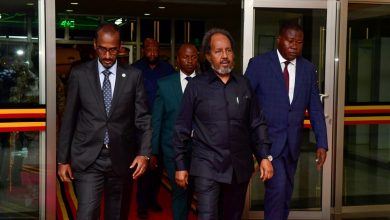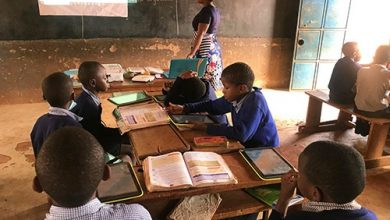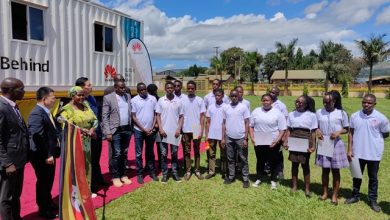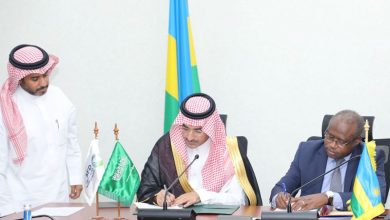Rwanda uses stage plays to teach youth about genocide history
Roughly 2,000 young people and government officials who attended the event lit candles in memory of the victims of the genocide.

Powerful plays, poems, songs and performances by young Rwandan artists were staged in Rwanda’s capital Kigali to educate youth about the history of the 1994 genocide against Tutsi.
The event was organized on Sunday as part of the ongoing 29th commemoration of the genocide which began on April 7.
It aimed to equip youth with facts about the history of the genocide against Tutsi in order to help counter genocide deniers and contribute to peace building, according to organizers.
One play titled “Truth to the Youth” by students of Gashora Girls Academy in eastern Rwanda emphasizes the importance of the youth knowing facts and being at the forefront of telling accurate history about the genocide in an effort to challenge its denial.
“Being youth shouldn’t be an excuse to forget our past,” the performers said.
Another play titled “Hobe Rwanda” by Rwandan artiste Junior Rumaga exhibited the impact of the genocide on families, but also punctuated by restored hope and nation rebuilding by the government of national unity in the aftermath of the massacres.
“Young people are better placed to preserve the unity of Rwandans and use social media digital resources in sharing real facts about the genocide against the Tutsi and fighting genocide denial and ideology,” Parfait Busabizwa, the Permanent Secretary of Rwandan Ministry of Youth, said during the event at Kigali Genocide Memorial Amphitheatre.
Claver Irakoze, author of the book “That Child Is Me,” shared his personal experience during the genocide and stressed the importance of documenting one’s history and sharing it.
He encouraged parents to educate their children about the genocide against the Tutsi through conversations that can help prevent trauma.
Various officials who addressed the audience educated youth about the root causes of the 1994 genocide against Tutsi and how it was stopped by the Rwanda Patriotic Army.
The event was organized by a non-governmental organization, Our Past Initiative, whose activities involve engaging Rwandan youth through social mobilization to tackle genocide ideology and promote social inclusion.
Roughly 2,000 young people and government officials who attended the event lit candles in memory of the victims of the genocide.
After the national mourning week which ends on April 13, genocide commemoration activities will continue until July 4 to mark the 100-day calamity, during which over one million people, mainly Tutsi and moderate Hutus, were killed.






